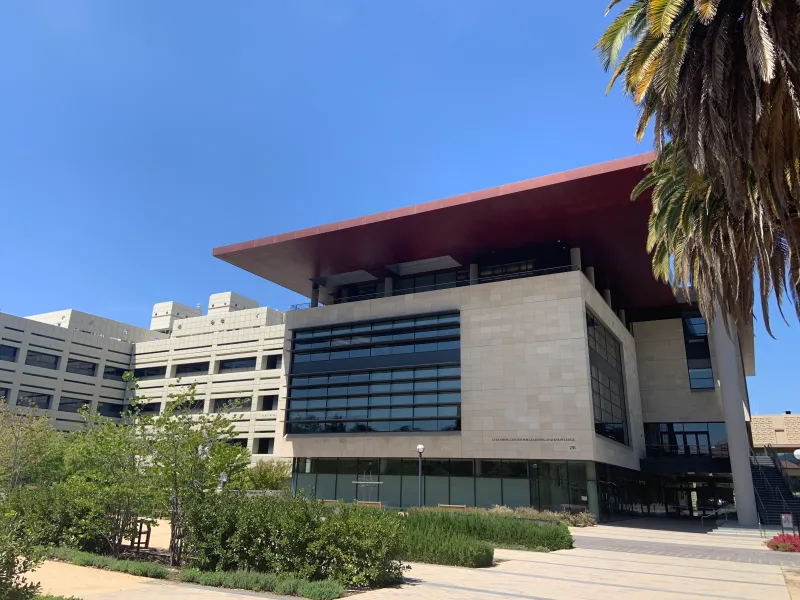As Stanford Medicine researchers continue research into mitigating the spread of COVID-19 and understanding its immunology, both healthy and infected volunteers are invited to participate in the studies.
Interested participants can either sign up for specific studies via the study website or register with the Stanford Medicine Research Registry to be paired up with studies that they are eligible for. Many of these studies have low risks and provide compensation for participants. Here are some active and recruiting studies that students and locals can participate in.
Early Detection of COVID-19 Infection Symptoms Using Wearable Devices Study
People ages 13 and older are eligible to participate in this study.
The study, led by genetics department chair Michael Snyder, aims to see if wearable devices can predict the start of diseases like COVID-19 prior to the onset of any symptoms. Participants will continuously wear a device and the data collected will be shared with the team for up to 24 months. Participants will also fill out 1-2 minute daily check-in surveys online. As compensation, participants may be able to keep the device if they were provided one.
Study of Effects of SARS-CoV-2 on the Cardiovascular and Immune System
People ages 18 to 80 who have taken a SARS-CoV-2 RNA test within the last five days and received confirmed positive or negative results are eligible to participate in this study. However, anemia patients with hemoglobin less than nine g/dL and people who have taken ACE inhibitors, angiotensin receptor blockers, corticosteroids or immunosuppressive medications in the past month or received an immunomodulatory antibody injection within the past three months are ineligible.
Led by chemical and systems biology professor Kevin Grimes MBA ’93, the study aims to better understand the clinical course, risk factors and potential treatments of COVID-19 by measuring levels of specific cardiovascular and immune system indicators. Participants partake in a 30-minute study by providing a blood sample and answering a few questions. As compensation, participants will receive a $100 Amazon gift card.
Study to Evaluate a Rapid, Home-Based Saliva Test for COVID-19
People older than two years old with access to an internet-enabled device capable of loading web pages, receiving text messages and taking and uploading photos are eligible to participate in this study.
Led by associate dean of the School of Medicine Euan Ashley, the study is designed to learn more about the reliability of SnapDx, a saliva-based COVID-19 test that is not currently FDA-approved. Participants take a maximum of five tests over an expected duration of one month, with each test taking around 30-40 minutes.
Study on New Treatments for COVID-19 (for patients with a positive test in the past eight days)
People who are 18 or older and have tested positive for COVID-19 in the past eight days without being hospitalized are eligible to participate in this study.
Led by assistant professor of medicine Prasanna Jagannathan, the study aims to improve health outcomes by evaluating the safety and effectiveness of experimental drugs to treat symptomatic non-hospitalized adults with COVID-19. After taking the study drug(s) or a placebo, participants partake in 28 days of follow-up, followed by limited follow-ups through six or 18 months depending on which drug the participant receives. As compensation, participants will be paid up to $584.
People ages 18 or older who tested positive for COVID-19 in the past seven days are eligible to participate in this study.
Led by associate professor of medicine Arthur Sung, the study aims to predict which COVID-19 patients will have the most issues by identifying the clinical factors that impact patients, focusing on blood oxygen levels. Participants receive a non-invasive pulse oximeter to measure the oxygen level in their blood and will respond to a short daily questionnaire for 14 days.
Non-hospitalized COVID-19 patients between 18 and 80 years old who are experiencing mild to moderate symptoms that started less than a week ago and who are not pregnant are eligible to participate in this study. Prospective participants will first answer questions about their medical history to determine if they meet all study qualifications.
Led by assistant professor of medicine Angela Rogers, the study looks at whether certain antiviral and anti-inflammatory medications help patients staying at home with COVID-19 symptoms to feel better faster. Participants take one of two types of study drug tablets or a placebo and will record their daily symptoms as well as provide blood, nose and throat swab samples. Participants will attend a start-up visit and three follow-up study visits at Stanford Medicine. The study is a total of 300 days: the first 28 days for treatment and the rest consisting of follow-ups. As compensation, participants will receive up to $350.
